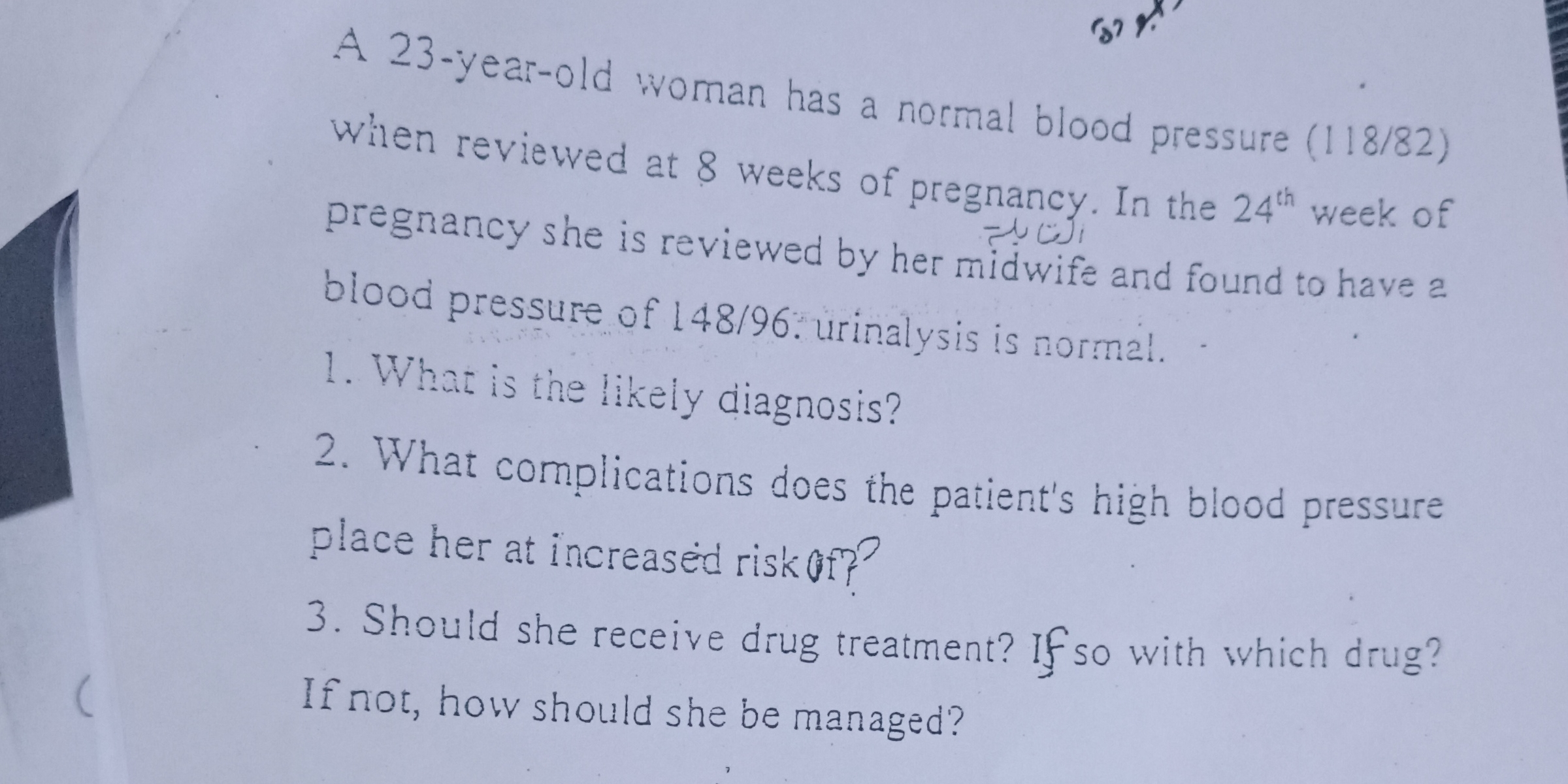A 23-year-old woman has a normal blood pressure (118/82) when reviewed at 8 weeks of pregnancy. In the 24th week of pregnancy, she is reviewed by her midwife and found to have a bl... A 23-year-old woman has a normal blood pressure (118/82) when reviewed at 8 weeks of pregnancy. In the 24th week of pregnancy, she is reviewed by her midwife and found to have a blood pressure of 148/96. Urinalysis is normal. 1. What is the likely diagnosis? 2. What complications does the patient's high blood pressure place her at increased risk of? 3. Should she receive drug treatment? If so, with which drug? If not, how should she be managed?

Understand the Problem
The question presents a case scenario of a pregnant woman with elevated blood pressure and asks about the likely diagnosis, associated risks, and treatment options.
Answer
1. Gestational hypertension 2. Risk of preeclampsia, placental abruption, preterm birth 3. Use labetalol or nifedipine if needed.
The final answer is 1. Gestational hypertension 2. Increased risk of preeclampsia, placental abruption, and preterm birth 3. Medication management with labetalol or nifedipine; lifestyle modifications may also be necessary.
Answer for screen readers
The final answer is 1. Gestational hypertension 2. Increased risk of preeclampsia, placental abruption, and preterm birth 3. Medication management with labetalol or nifedipine; lifestyle modifications may also be necessary.
More Information
Gestational hypertension is distinguished by new onset high blood pressure after 20 weeks of pregnancy without proteinuria. Monitoring is essential to manage potential progression to preeclampsia.
Tips
Ensure proteinuria is absent before diagnosing gestational hypertension; consider close blood pressure monitoring and non-pharmacological interventions.
Sources
AI-generated content may contain errors. Please verify critical information